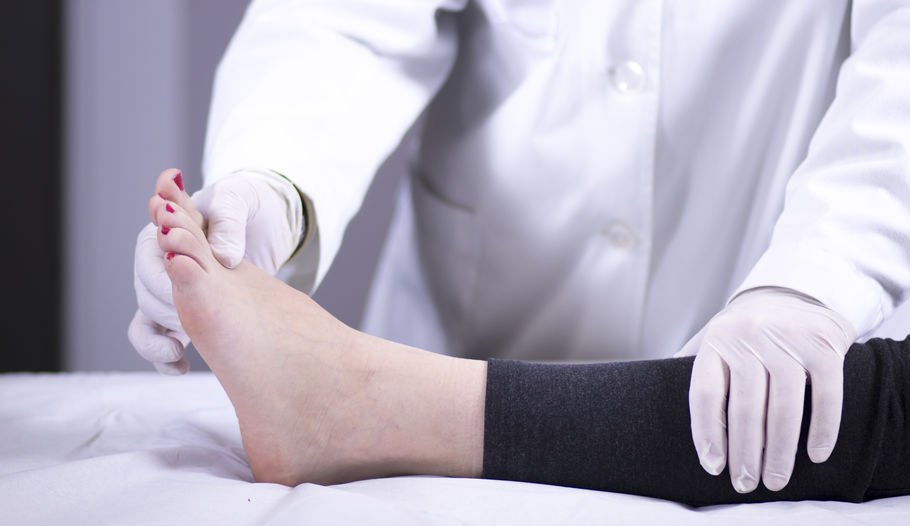Are Thyroid Problems Causing Your Foot Pain?
Thyroid disease refers to any malfunction of the thyroid gland, which is a large gland located in the front of the neck that is shaped like a butterfly. Because January is Thyroid Awareness Month, today Dr. Ross Cohen of The Foot & Ankle Center of Maryland in Anne Arundel County, Maryland is sharing information regarding how your thyroid can affect your feet.
The job of the thyroid gland is to release and regulate hormones, and it’s responsible for everything from peripheral nervous system functions to heart rate.
And you may be a bit surprised to find that this same condition that can make you feel brain foggy and tired can also cause alterations in your feet. And your feet may be attempting to alert you about a thyroid problem. Following are three ways.
1. Your hands and feet always feel cold to the touch. Because your metabolism depends on your thyroid, it’s not surprising that an underactive thyroid slows down the metabolism, which causes your body’s temperature to decrease. This may be why your hands and feet always feel cold to the touch, especially during colder weather months. Some people who experience hypothyroidism have to also deal with a condition known as Raynaud’s syndrome, in which the hands and feet are so cold that they go numb and turn white or blue.
2. Your feet swell. While there are several things that can cause feet to swell, if it happens regularly you may want to have your thyroid checked. And because people with hypothyroidism are also disposed to tarsal tunnel syndrome - which can result in permanent nerve damage if left untreated - you must see a podiatrist for consistent, regular care if you have been diagnosed with a thyroid disorder.
3. Your feet are dry and cracked. While there are several reasons why someone might have cracked, dry feet, including long-distance running, winter weather, or being on your feet all day, your thyroid might also have a role in your condition. Many patients who experience hypothyroidism, which is a condition caused by an underactive thyroid, report cracked, dry skin on the soles of their feet, especially on the heels. In some cases, they might also notice that your skin seems almost leathery in appearance and thickness and deep, painful fissures. This is also a sign that you should have your thyroid evaluated.
If you observe any changes in your feet and you’d like us to take a closer look, contact the office of Dr. Ross Cohen of The Foot & Ankle Center of Maryland located at 808 Landmark Dr. #225 in Glen Burnie, Maryland today by calling (410) 761-3501.
